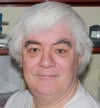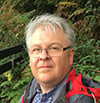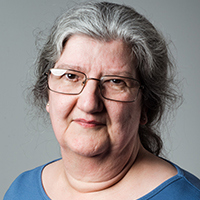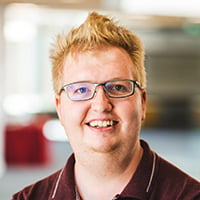Kent branch: Committee
Here are the members of the Kent branch committee.
Chair
Eur Ing Bob Eager CEng CITP FBCS MIET
 Bob studied for a degree in Electronics at the University of Kent, and by the end of his first year had become deeply interested in computing; so much so that he spent most of his final year modifying a minicomputer CPU to ‘improve’ it.
Bob studied for a degree in Electronics at the University of Kent, and by the end of his first year had become deeply interested in computing; so much so that he spent most of his final year modifying a minicomputer CPU to ‘improve’ it.
This naturally led to a Master’s degree in Computing at the University of Essex, followed by an invitation to some further work back at Kent. This involved a lot of low level fiddling with PDP-11 systems (among others), which included operating system modification and development.
He became a Lecturer in Computer Science at Kent in 1978, and was heavily involved in rolling out the EMAS operating system on the University’s ICL 2900 mainframe a year later, as a replacement for the doomed VME/K system. This was the source of much fun, especially the installation of a second processor (and the related reverse engineering of the microcode to discover the programming interface to do this). Further amusement was caused by his discovery of a design flaw in the processor (never admitted by the manufacturer) and his engineering of a microcode fix for this.
Bob went on to manage the University's VAXCluster for six years, before moving sideways to spend ten years as Master of Darwin College at the University.
Through all this time, he continued to teach such diverse subjects as computer hardware, operating systems, compiler writing and a few other things.
Bob has been a consultant for numerous companies, including BT, Olivetti, Pfizer, RHM Foods, and several others; the most notable was probably McCormack and Dodge (later Dun and Bradstreet Software Services) where he implemented a core part of their Millennium system.
He is still an unreconstructed geek; he is a member of the Computer Conservation Society, and likes talking about, and playing with, seriously old, large and underpowered computers.
Secretary
Roger Burnett CITP MBCS
 Roger is a chartered member of the BCS. He has over thirty years’ experience in the IT industry; for the last twenty, he has been working for a large corporation, responsible for the design, engineering and implementation of enterprise-wide infrastructure projects. This has included global deployment of managed Windows clients, in multiple languages, Office 365, System Center Configuration Manager and a solution to manage multiple web browsers via a combination of Microsoft’s Group Policy and third-party tools.
Roger is a chartered member of the BCS. He has over thirty years’ experience in the IT industry; for the last twenty, he has been working for a large corporation, responsible for the design, engineering and implementation of enterprise-wide infrastructure projects. This has included global deployment of managed Windows clients, in multiple languages, Office 365, System Center Configuration Manager and a solution to manage multiple web browsers via a combination of Microsoft’s Group Policy and third-party tools.
He is a firm believer in maintaining high standards of quality and professionalism in all aspects of IT project and service delivery.
Treasurer
Matthew Boakes
Committee (Education)
 Tina Eager CITP MBCS MIET FSET FHEA QTLS
Tina Eager CITP MBCS MIET FSET FHEA QTLS
Tina started in computing as a commercial COBOL programmer. She moved into designing, testing and implementing multi-user data processing systems, including database administration and the use of other programming languages.
Subsequently, she became a further education lecturer, course tutor and programme manager. This included setting up distance learning for overseas candidates in BCS examinations.
Further teaching was at a variety of schools, mainly teaching older students in ICT and computing. This included the development of links with local businesses, and in later posts being the head of the computing department.
More work followed in further education, including curriculum leadership and development on computing and engineering courses, culminating in appointment as Programme Area Manager in Engineering in a further education college.
She is currently a senior lecturer in computing at a university in Canterbury, and Programme Director for Software Engineering there.
Committee
Matthew Boakes MBCS

Matthew is relatively early in his computing career, and is currently a research associate at the Alan Turing Institute within the Trustworthy Digital Infrastructure for Identity Systems project.
He is studying Biometrics for National Identity Systems, focusing on voice. His primary interests are cyber security, biometrics, and artificial intelligence. He recently completed his PhD at the University of Kent on the 'A Performance Assessment Framework for Mobile Biometrics' project. In addition, he is a committee member for the development of BSI IST/44 and ISO SC 37 WG5 biometric standards.
Matthew is also passionate about cyber-related security and is Certified in Cybersecurity (CC) and an external supervisor for CIISec CyberEPQ projects.
He has also achieved awards for his higher education teaching at the University of Kent. He has assisted modules from the School of Computing and Engineering, ranging from foundational to Master's level. He has published work in IEEE Transactions journals and at ICPR conferences.
Committee
Mark Wilson MBCS

Mark currently has over 30 years of experience working in the IT industry.
He has worked from programmer to a c-suite business Head of Information Technology. Mark currently heads up all software development for a well-known SME.
A varied career has seen Mark work throughout the UK, and much further afield at times. He has worked from being a contractor to a full-time employee, and has much experience in the challenges different roles IT professionals face.
Mark is passionate about correctness throughout the entire software development stack through the use of provable software development technologies, and formal methods. In particular, bringing those technologies to bear within the business community.













